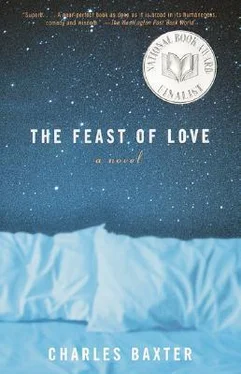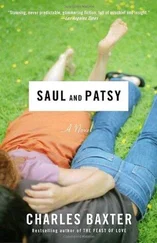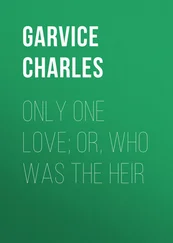That evening at dinner I broke the news to Esther.
Aaron has disappeared, I said. I tried calling him but his number’s dismembered. Disconnected, I mean.
Oh, honey. No one disappears. What do you mean?
I explained. Maybe no one disappears. But he has, not to the world of course, but to us. I told you: his phone’s disconnected. He’s not working at the florist anymore.
Esther put down her fork. He’s just moved, Harry. He’ll tell us where he has moved to as soon as he can. We have to be patient with Aaron. His maturing is taking its time.
Maturing! He is one of these never-never land Americans who will never grow up. Intellectually he is still in diapers. I feel like calling Los Angeles missing persons. I feel like calling the Martian embassy.
Don’t do that yet, she said. He’s not missing.
I could hardly look at her face.
He’s not missing, she repeated, to succor me. He is somewhere. He is always somewhere.
But he was missing. The police could find no trace of him. They recommended a private detective who at great expense to us found a few sniffs and scents of him in the Pacific Northwest but not the person himself, not Aaron, our son.
America, as everyone knows, is large enough to lose a child in. The tendency of the country to absorb its inhabitants and to render them anonymous and invisible had gone to work. He was now a runaway, a runaway from us, and was effectively erased.
My vice is the comfort of abstractions. Concrete events as a rule disable me. When my son disappeared from the face of this earth, I was willing to try out sociology, I was willing to commit a social science the better to know the patterns of mislaid children in a post-industrial economy. I was willing to try out religion: Judaism, Christianity if need be. An exceptionally developed capacity for abstract thought does not preclude a consideration of the soul, a word I do not surround with fussy quotation marks. But I did not know how to look for him, and I no longer knew how to think about him, either. Concerning Aaron, I could find refuge in no known set of ideas. Aaron had gone to work on his own invisibility with zest and imagination, as if he had finally discovered a calling, which was the eradication of himself.
We have, Esther and I, two successful children, Sarah and Ephraim. We love them and think about them. But we do not think about them half as much as we do Aaron, who is unsuccessful and invisible besides. As the tongue goes to the missing tooth, so do we poke and pry at his absence. He is our null.
He is not a boy, but a young man. We must — we had to — give him over to the mischievous criminal attentions of the world. And now he had taken his heartfelt leave of the public realm. He did it to hurt us.
When Esther and I are alone together in the evening, we avoid looking at each other’s faces. Aaron’s disappearance is much too visible in our eyes for us to bear the mutual sighting of it in ourselves. Esther and I know each other so thoroughly, we don’t even have to confirm our thoughts back and forth anymore. I know her moods; she knows mine. Aaron has achieved his purpose. I mean this: When you break the heart of a philosopher, you must apply great force and cunning strategy, but when the deed is completed, the heart lies in great stony ruin at your feet. If you succeed in breaking it, the job is done once and for all. It will not be repaired.
Thus encumbered, I taught Chloé to waltz on her wedding day, humming to her tunes from Die Fledermaus.
IT DOESN’T SEEM FAIR that I’ve spent all this time telling you about Kathryn and Diana, who made me unhappy, but not about Margaret, who did the opposite and filled me with joy, a word I don’t trust and have never used in my life until this moment. When I met Margaret, I wasn’t inclined to tell anyone what was going on between us. People don’t go to psychiatrists and pay good money to talk at length about how happy they are. Talking can spoil it. As a rule you don’t settle down at the end of the day with a beer and tell your friend the particulars of how you lucked out and how well the day and the week and the year went, unless you’re the gloating type. You just don’t do that. It’s provocation. You find some other neutral ground. If you’re smart, you keep happiness to yourself.
THE FIRST TIME I called Margaret to invite her out, she asked me why I had called, and I told her that I had admired the color of her yes. I meant eyes but said yes. I think she was touched by my dazed friendliness. She wasn’t inclined to go out with me — she had an on-again, off-again boyfriend — but at last she decided to take a chance on me, just for coffee at first, at Jitters.
I gradually learned that she’s so used to emergencies that she’s relaxed and urbane about the rest of life. Almost nothing fazes her. She has a calming effect, as a human being, as a person. As a doctor, she’s used to the sight of blood, gunshot wounds, broken bones, and the other norms of calamity. A daily diet of emergencies puts existence itself into a steady and calm perspective. She told me a few weeks after our first date that I looked like someone who had offered love to a lot of people but that I hadn’t had any takers so far. Then she said that I was an unusual man, and when I asked her why, she said I was “openhearted,” which made me look down at the ground, not knowing what to think. Women use such words at the oddest moments. No, that’s wrong. Only Margaret ever used that word, maybe because she’s a doctor. Then I was gazing at her face with such concentration that I could hardly hear what she was saying. When I realized what she had said, I kissed her, and she kissed me back. Bradley stood nearby watching us and wagging his tail. She never called me a Toad. Perhaps she had never seen one.
We were standing in the kitchen. It was raining out. She leaned back against the kitchen counter. She said, “I’ve heard about men like you, but I never actually met one until now.”
I went to her dripping blood, my heart in tatters over Diana, and she cured me of that in a week.
She was born in this country. Margaret’s parents were African diplomats who sent her to schools in the United States, where she decided to remain after she’d finished her internship. She didn’t dislike white people. She liked emergency medicine and wanted to practice it in a large training hospital. That’s all I’ll say about that.
HERE’S A PROFUNDITY, the best I can do: sometimes you just know. Chloé and Oscar knew. You just know when two people belong together. I had never really experienced that odd happenstance before, but this time, with Margaret, I did. Before, I was always trying to make my relationships work by means of willpower and forced affability. This time I didn’t have to strive for anything. A quality of ease spread over us. Whatever I was, well, that was what Margaret apparently wanted. I wasn’t sure that she’d want a white guy like me, a service person afflicted with modesty, but she said she didn’t care about my color or my temperament one way or another because they were fine just as they were. She hadn’t thought she could love a man of my race, but once I showed up in her life, I turned out to be the man she loved, what is the word, regardless. To this day I don’t know exactly what she loved about me and that’s because I don’t have to know. She just does. It was the entire menu of myself. She ordered all of it.
We do what you do in tandem when you belong together. We go to movies, we go dancing (she’s a better dancer than I am), we go to the grocery store and hold hands in the aisles (scandalizing the racists), we decide about furniture, we cook, we make love, we talk about the future, we play with the dog and take him for walks, we talk about our plans to get married, where and how and when. We fit together. (I avoid saying these things in public; people hate to hear it, as if I’d forced them to eat raw sugar.) There’s nothing to talk about to strangers anymore, if you know what I mean. Everything I want to say, I want to say to her. Life has turned into what I once imagined it was supposed to be, as complacent and awful as that sounds. In fact, I don’t really want to talk about this anymore. As the poet says, all happy couples are alike, it’s the unhappy ones who create the stories.
Читать дальше
Конец ознакомительного отрывка
Купить книгу












